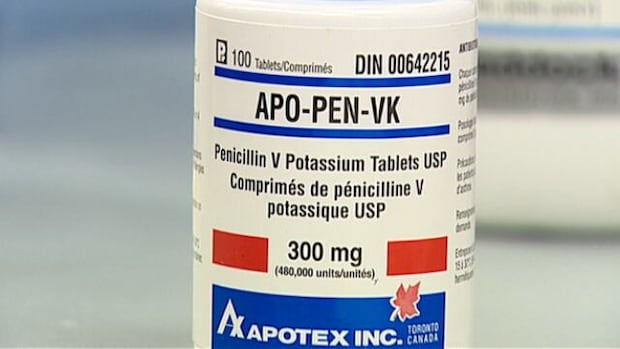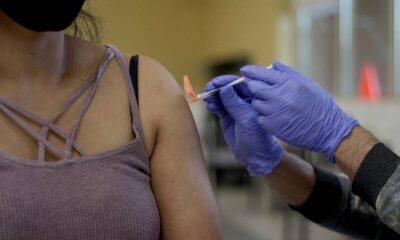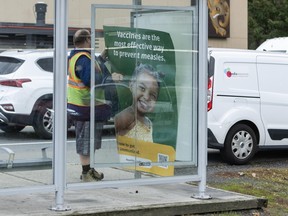Health
B.C. Allergist Tackles Misdiagnosis of Penicillin Allergies

In British Columbia, a significant number of individuals diagnosed with a penicillin allergy may not actually have one. Dr. Tiffany Wong, an allergist and co-lead of the penicillin de-labelling project, is spearheading efforts to address this issue. She has developed a practical tool for healthcare professionals to evaluate patients who suspect they have a penicillin allergy, aiming to identify those who are at low risk.
Research from the B.C. Centre for Disease Control indicates that approximately 10 percent of the population reports a penicillin allergy, yet fewer than 1 percent actually possess a true allergy. Further findings suggest that over 80 percent of individuals who believe they are allergic can safely receive penicillin.
Common Misdiagnosis and Its Consequences
Dr. Wong notes that misdiagnoses often stem from symptoms that are mistaken for allergic reactions. Conditions like rashes, which can appear in children taking antibiotics, are frequently attributed to the medication instead of the underlying infection. “We have years of research and data looking at children and adults, and then we go back and challenge them with the antibiotics,” Dr. Wong stated. “Over 90 percent of them can tolerate it.”
This misdiagnosis poses a significant problem, as penicillin remains one of the most effective treatments for common ailments such as ear infections and pneumonia. Alternatives are often less effective, more costly, and can lead to serious side effects. Dr. Wong emphasizes, “By the time people are sick and need an antibiotic, that’s not a good time to do a test dose.”
Streamlined Assessment Process
The long wait to see an allergist in British Columbia can extend up to two years. Dr. Wong advises that individuals uncertain about their penicillin allergy should consult their general practitioners. Many healthcare professionals, including pharmacists and nurse practitioners, can perform assessments during routine visits.
“You don’t need to see an allergist in order to be de-labelled because most people aren’t actually allergic,” Dr. Wong explained. Her project, which began a decade ago, has seen increased awareness and participation from healthcare professionals, yet she acknowledges that much work remains to be done. “We have finally been able to get the snowball rolling,” she said. “Until we can actually practice primary prevention, which is not erroneously diagnosing people with an allergy in the first place, it’s going to be a while.”
As efforts continue to clear the misconceptions surrounding penicillin allergies, the emphasis remains on accurate diagnosis and effective treatment, ultimately improving patient outcomes across the board.
-

 World4 months ago
World4 months agoScientists Unearth Ancient Antarctic Ice to Unlock Climate Secrets
-

 Politics4 days ago
Politics4 days agoSecwepemc First Nation Seeks Aboriginal Title Over Kamloops Area
-

 Entertainment4 months ago
Entertainment4 months agoTrump and McCormick to Announce $70 Billion Energy Investments
-

 Lifestyle4 months ago
Lifestyle4 months agoTransLink Launches Food Truck Program to Boost Revenue in Vancouver
-

 Science4 months ago
Science4 months agoFour Astronauts Return to Earth After International Space Station Mission
-

 Technology2 months ago
Technology2 months agoApple Notes Enhances Functionality with Markdown Support in macOS 26
-

 Top Stories4 weeks ago
Top Stories4 weeks agoUrgent Update: Fatal Crash on Highway 99 Claims Life of Pitt Meadows Man
-

 Sports4 months ago
Sports4 months agoSearch Underway for Missing Hunter Amid Hokkaido Bear Emergency
-

 Politics3 months ago
Politics3 months agoUkrainian Tennis Star Elina Svitolina Faces Death Threats Online
-

 Politics4 months ago
Politics4 months agoCarney Engages First Nations Leaders at Development Law Summit
-

 Technology4 months ago
Technology4 months agoFrosthaven Launches Early Access on July 31, 2025
-

 Top Stories2 weeks ago
Top Stories2 weeks agoFamily Remembers Beverley Rowbotham 25 Years After Murder













